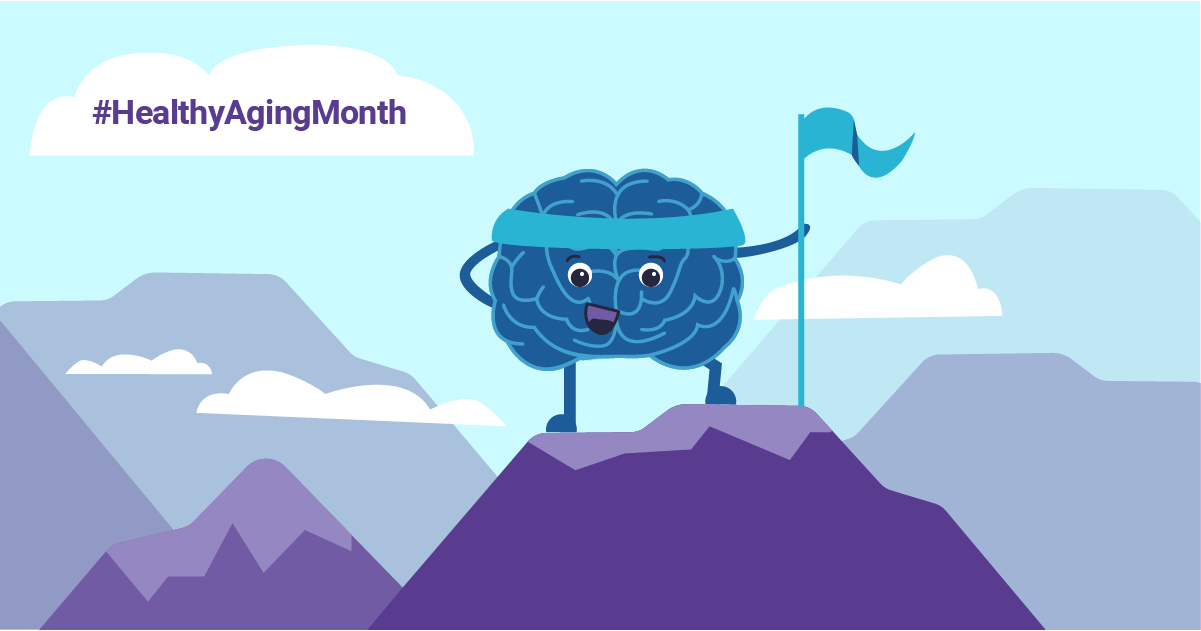This September marks 30 years of celebrating Healthy Aging Month – the national observance focused on the positive aspects of growing older and encouraging everyone to take personal responsibility for their health. While you can’t control your genetics, research shows there are several steps you can take to maintain your health and quality of life as you age and live as independently as possible.
Whether the lazy days of summer took you away from your normal healthy habits or you’re making a new commitment to your health this September, we encourage you to join us in celebrating Healthy Aging Month by taking action to promote healthy aging and good brain health.
Here are six tips to get you started:
- Get Moving: Physical activity is crucial to your brain health and overall health. Many studies have shown regular exercise helps people not only live longer, but also live better by enjoying many more years without pain or disability. Recent research from the University of Florida McKnight Brain Institute also found that seniors age 85-99 who exercised regularly scored higher on cognitive tests than those who were sedentary. The CDC recommends aiming for moderate physical activity, like walking, at least 150 minutes a week and muscle strengthening activity (even carrying groceries helps!) at least two days a week. That may sound like a lot, but remember every bit of exercise counts – like short walks, taking the stairs instead of the elevator and fitting in a few squats while you do the dishes. If you’re looking for more exercise ideas, our article on the best exercises for brain health can help you get started.
- Make Smart Food Choices: With different diets popping up almost daily, it’s hard to know which diet recommendations to follow. Overall, the 2020-2025 Dietary Guidelines for Americans is a good place to start. The Guidelines suggest eating a lot of fresh fruits and vegetables, whole grains, healthy fats, and lean proteins as the key to overall health and wellness. While research on the topic is mixed, studies have shown that people who closely follow the MIND diet have better overall cognition than those who follow other diets.
- Prioritize Sleep: Good quality sleep helps you stay healthy and alert. Aim to get the recommended 7-8 hours of sleep at night to boost both your memory and mood. Sleep also helps keep you from feeling irritable, depressed and forgetful during the day. Learn more about the connection between sleep and brain health here.
- Mental Health Matters: Your mental health is an important component to your overall health. Decreasing stress, maintaining social connections and finding your purpose in life all contribute significantly to health brain aging. In fact, research has found purpose in life is one of the most promising factors linked to directly improving outcomes across a variety of health conditions, including dementia and longevity.
- Don’t Skip Check-ups: Keep up with your regular doctor’s appointments and stay on top of your preventative health screenings. Wellness visits and routine screenings are the key to preventing diseases or finding out about conditions early when treatment is more effective.
- Take Note of Any Changes in Your Brain Health: It’s natural for your brain to change with age, but memory problems that affect your ability to complete everyday tasks are not a normal part of aging. Be sure to talk to a family member or see your doctor right away if you have questions or concerns about your memory. Learn more about cognitive aging and how you can optimize your brain health here.

